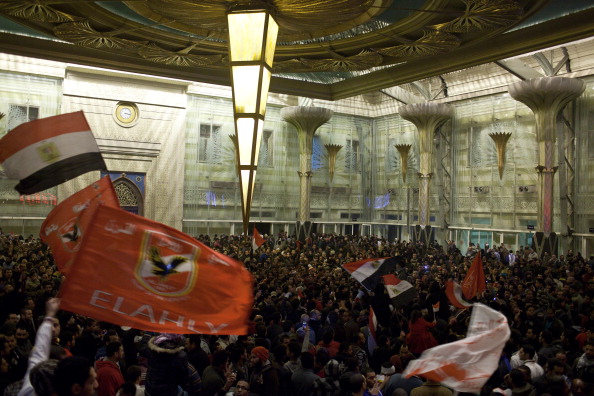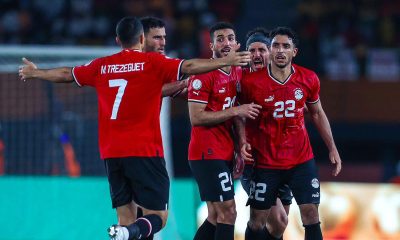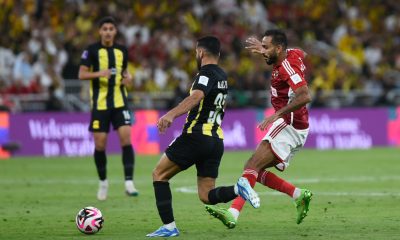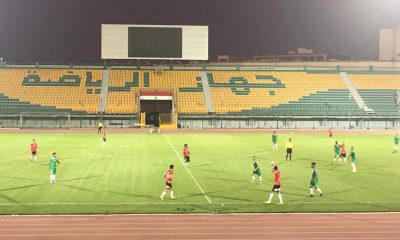Just days after the one year anniversary of the revolution, Egyptian football was plunged into despair by the tragic events in Port Said.
Egypt. Approximately a year ago we were celebrating our revolution. Now we are in mourning. One of our main sources of joy, football, became a war-zone overnight. On February 1st 2012, the world witnessed the most devastating tragedy in Egyptian football history.
What started off as a match between Cairo giants Al Ahly and Al Masry in Port Said, ended with at least 74 away fans dead and over 1,000 injured. The majority of these victims were teenagers, the youngest being just 14 years old. This is the largest number of casualties in football since the disaster in the Accra Sports Stadium, 2001. The largest Egypt has witnessed since losing our martyrs to the Mubarak regime last year. “A black day for football,” claimed FIFA president Sepp Blatter. To Egypt, this was an understatement. Egypt will forever be scarred (note – some may find these scenes upsetting).
Al Ahly S.C. has always been known as ‘the people’s club’ since being founded in 1907. Despite Egypt being a British colony until 1952, the colors worn by Al Ahly (red and white) are symbolic; to honour the Egyptian flag during the Ottoman Empire.
Ultras Ahlawy (Ahly ultras) were formed the year of the club’s centenary. They occupy the left sections of Egyptian stadiums, directly behind the goal. Never concerned with their poor view of the pitch, ultras dedicate 90 minutes to orchestrate their own shows, from tifos to pyrotechnic spectacles. Uplifting the spirits of their players, sending chills to the opposition, while keeping neutrals amazed by the choreography. Their chants are clear enough that those watching through television sets could write out the lyrics. Since football is the most popular sport in Egypt and Al Ahly the most popular club, millions hear the ultras on matchday.
Simply labelling ultras as football supporters is a misconception; to them, ultras are a way of life. Since the Egyptian revolution, the chants of ultras have been much more directed towards the country’s authorities rather than the opposing team.
Both Ultras Ahlawy and Zamalkawy (Zamalek ultras) played a crucial role in toppling the Mubarak regime by utilising their massive online communities to rally demonstrations. They also added the much-needed experience to orchestrate chants; converting the numerous voices into a single sound. Their skills developed in football stadiums really came to life in Tahrir Square.
Recently, they’ve been using the same methods in attempts to rid Egypt of the Supreme Council of Armed Forces (SCAF). As mentioned in my previous piece, one of the members of Ultras Ahlawy, 19-year-old Mohamed Mostafa, was killed protesting last December, shot in the back by an officer. This reignited the hatred Ahly ultras held towards the authorities. The abbreviation “A.C.A.B.” started prior to Mohamed’s death, but now it’s almost unavoidable in Cairo. These four letters are seen countlessly on banners during Ahly games or in forms of graffiti throughout the streets. For those wondering, it stands for “All Cops are Bastards”.
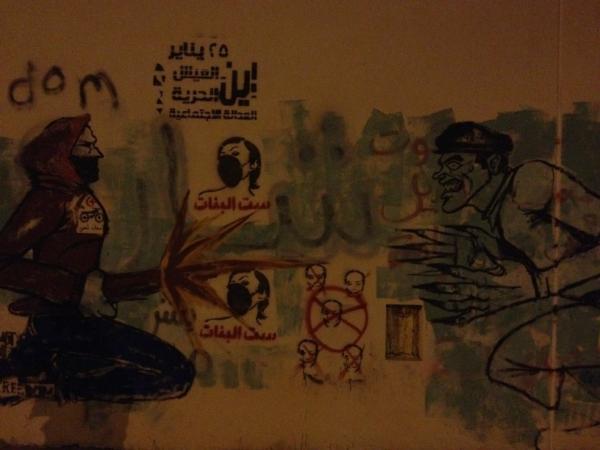
Graffiti in Cairo, Ultras Alahwy v SCAF
This video is of the ultras chanting “Down with military rule!” just days before the Port Said massacre. Note the image of martyr Mohamed Mostafa in between the “Ultras Ahlawy” banner.
Outside of Cairo, Al Ahly’s most fierce rivals are Ismaily and Al Masry. In recent years, whenever these fixtures approach, the wars commence online. Feuds between Al Ahly and Port Said-based Al Masry have gone on for years but never have the battles become a matter of life and death.
Prior to the match between Al Ahly and Al Masry, the Ultras Green Eagles (Masry Ultras) left a rather sickening status on their Facebook page: “To all the Ahly fans coming to the stadium tomorrow… Make sure you leave a will for your mothers!” Comments like these are rather common in Egypt, always regarded as empty threats.
To get a taste of the Ultras Ahlawy dedication, this was their main chant sung throughout the clash with Al Masry:
“The greatest club in the universe,
Even if the whole world is against you,
I’ll always be madly in love with you.
The day you win is a day of celebration for me,
I will never be far from you.
The day I stop supporting,
I will surely be dead.”
Notice the last two lines are sung the loudest.
Tragedy strikes
Problems began before the football. Masses were being let into the stadium without tickets and none were searched. From personal experience, if you have a lighter or even a water bottle at Egyptian grounds, it is confiscated. How then were large fireworks and knives being smuggled in?
11 minutes in, Ahly scored first. The majority of Masry fans remained glued to their seats, disappointed. A handful ran onto the pitch a few minutes later. These suspicious men looked quite older and seemed lost when no one else joined their little fiasco. Nevertheless, the situation was calmed and the match resumed.
The remaining three goals of the match were scored by Al Masry. On each occasion, much larger numbers of fans rushed to the pitch, only this time in joy to celebrate with their players. Nothing was done to prevent this as the security forces watched, all three times. Once the final whistle was blown, the majority of the home seats were empty.
On frequent occasions this year, fans have stormed the football pitch, for various reasons. This time, it initially appeared a unique display of celebration from the home supporters. Hossam Hassan, coach of Masry, was being carried on the shoulders of a few, some celebrated with their players while a vast number sprinted to the opposite end of the stadium, towards the Ahly players and fans. The majority of the Ahly players hurdled towards their dressing room; a similar sight to the ‘Running of the Bulls’. Goalkeeper Sherif Ekramy remained on the pitch a little longer, only to be greeted with fists; a signal, if needed, to escape.
When the “Masry fans” attempted to attack the opposition, some Ahly supporters seemed more concerned with the players’ lives than their own. “EL LAEEBA!” The players screamed. A few of these brave souls jumped into the chaos, in attempt to protect the Ahly squad. Once the players escaped, the thugs turned their attention towards the away fans with approximately two lines of riot police standing between the two. The thugs stepped up, the police stepped aside. All hell broke loose.
The stadium lights were shutoff in the midst of the turmoil. Ahly fans were forced all the way to the back of the away section; they were beaten by various weapons, stabbed or thrown over the stadium. 74 away fans dead, over 1000 injured. One of the founders of Ultras Ahlawy, Mahmoud Ghandour, was amongst the deceased.
The fans who escaped the wrath of the criminals couldn’t exit through the nearest gates; apparently locked at the time. These doors were later discovered to have been welded from the outside. The doors in the opposite end were wide open, more hooligans pouring while police outside the stadium watched. It’s totally wrong to put all blame on the entire city of Port Said. This is a city of hundreds of thousands and their inhabitants were amongst the bravest during the Egyptian revolution. What seems increasingly certain though is that these events were staged.
The scenes in the Ahly dressing room were described as looking like a morgue by their goalkeeping coach Ahmed Nagi. Sherif Ekramy claims that even fans who were evidently wounded told the players not to worry about them, stating the players’ lives as being more important. Some of these same fans died moments later.
One supporter died in Mohamed Abu Treika’s arms. Some of his final words to the Egyptian icon were “Captain, I’ve been dying to meet you, and now I know I’m going to die because I met you.” Since Abu Treika is a practising Muslim, he reminded the man to repeat the shahada, the young man died after he acknowledged Treika’s reminder. Scenes from wars have somehow crept into Egyptian football.
Aftermath
Back in Cairo, the main train station was packed as friends and families anxiously awaited the return of Ahly fans. Even Zamalek ultras waited anxiously for the return of their rival fans. They joined in the chants, “We want justice for them or we want to die like them!” There were both heartwarming and heartbreaking scenes. Some fans limped towards the arms of their loved ones, while some families broke down in tears; whoever they were waiting for never made it out of Port Said.
Many Egyptian players have made it very clear that they’re willing to sacrifice football after the tragedy. Despite being persuaded by emotions in the heat of the moment, Mohamed Barakat, Emad Metab and Mohamed Abu Treika all announced their retirement from football; the latter recently reiterating his statements. Many other footballers in Egypt have echoed these claims, including Zamalek starsAmr Zaki and Ahmed Hassan. Zaki said, “I will not play in Egypt if those responsible for the Port-Said massacre are not held accountable, including the governor, chief of security and the manager of the stadium.”
Since the Port Said massacre, Egyptians have taken to the streets to blame SCAF, rightfully so. Last year most players remained silent over their political standpoint. This time around, the likes of Abu Treika and Shikabala were quick to join in the chants “Down with the military rule!” Treika later refused to shake hands with Field Marshall Mohamed Hussein Tantawi, currently in charge of the country. Riot police have resorted to tear gas canisters and pellet guns to fend off protestors.
The question is where were these weapons when needed to defend those in Port Said? The Egyptian revolution remains incomplete. Mubarak is out of parliament, but his policies remain;justice has yet to be served.
Despite the evil that has taken place in Egypt during this tragedy, there were some moments of good. While the majority of foreigners would be looking for the escape route in such circumstances, Bob Bradley and Manuel Jose have stood their ground in solidarity with Egypt. The day after, a bank account was opened with all proceeds going to the victims’ families. No sum of money can bring back their loved ones but it’s still positive to see. Many, including Jose, didn’t hesitate to donate.
Al Ahly president Hassan Hamdy also says players want portions of their wages donated monthly to these families. Shikabala, despite having countless feuds with Ahly fans over the years, donated one million Egyptian pounds, a sum only slightly less than what all of FIFA offered. The Ahly fans responded with gratitude towards him, creating a Facebook group titled “Ahly fans – we are sorry Shikabala.” The Zamalek wizard’s response to the group was, “Despite the cruelty of what happened in Port-Said, the disaster helped unite the fans of all clubs.” It will be hard for Egypt to return to its footballing ways anytime soon. Our priority is justice.
On behalf of King Fut, I would like to extend our sincere condolences to the family, friends and all those affected by the Port Said tragedy. Their lives are gone but never forgotten.
This post was written by Adam Moustafa and originally published on Just Football.
Co-Founder, Chief Technology & Content Officer of KingFut.com. Goal with KingFut is to scout and promote Egyptian talent – both local and abroad – who don’t receive the credit and coverage they deserve. Graduated from the University of Toronto with a B.A.Sc in Electrical Engineering and have previously featured on BBC World Service, 5 Live, Chelsea TV & more.

Latest
-
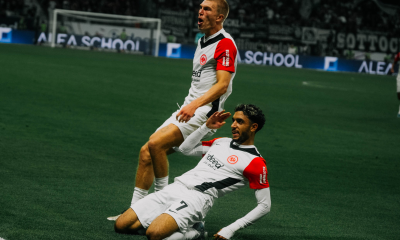

News
/ 11 hours agoMarmoush strikes again in Frankfurt’s win over Mönchengladbach
Omar Marmoush is not showing any signs of slowing down after scoring again in...
By Saher Ahmed -
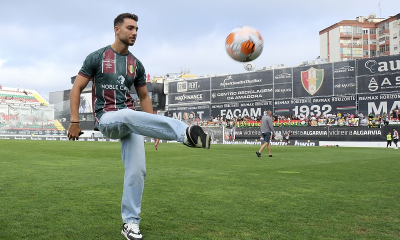

News
/ 11 hours agoBilal Mazhar makes Estrela debut, Kouka features for Rio Ave
Egypt international Bilal Mazhar has made his debut for Portuguese outfit Estrela da Amadora...
By Seif Soliman -
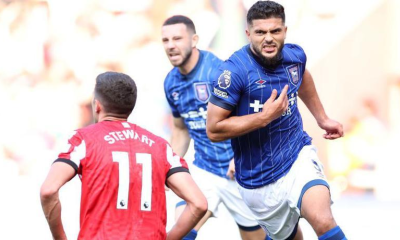

News
/ 12 hours agoSam Morsy ‘delighted’ with first Premier League goal
Sam Morsy has revealed his delight following his late dramatic equaliser against Southampton on...
By Seif Soliman -
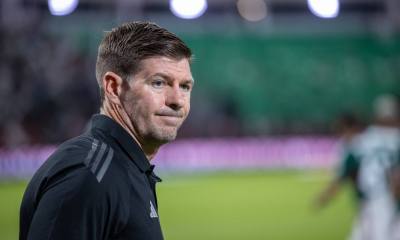

Beyond Borders
/ 13 hours agoSteven Gerrard: I wish we had faced Al Nassr under Castro
Englishman Steven Gerrard, head coach of Al-Ettifaq, expressed his frustration following the team’s 3-0...
By Saher Ahmed
